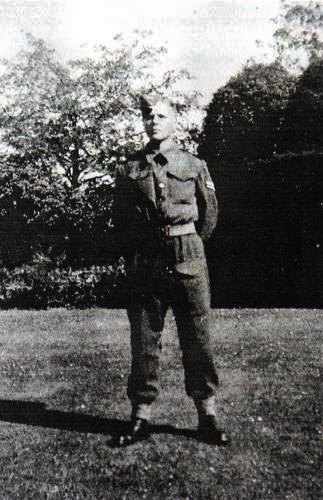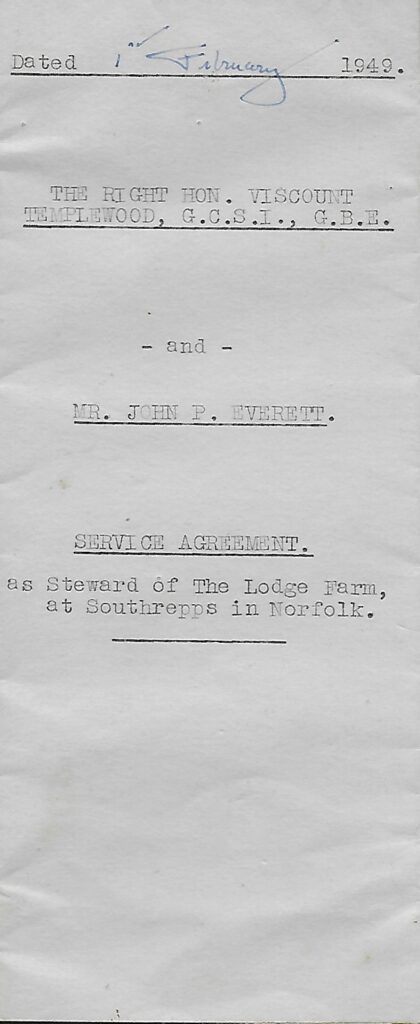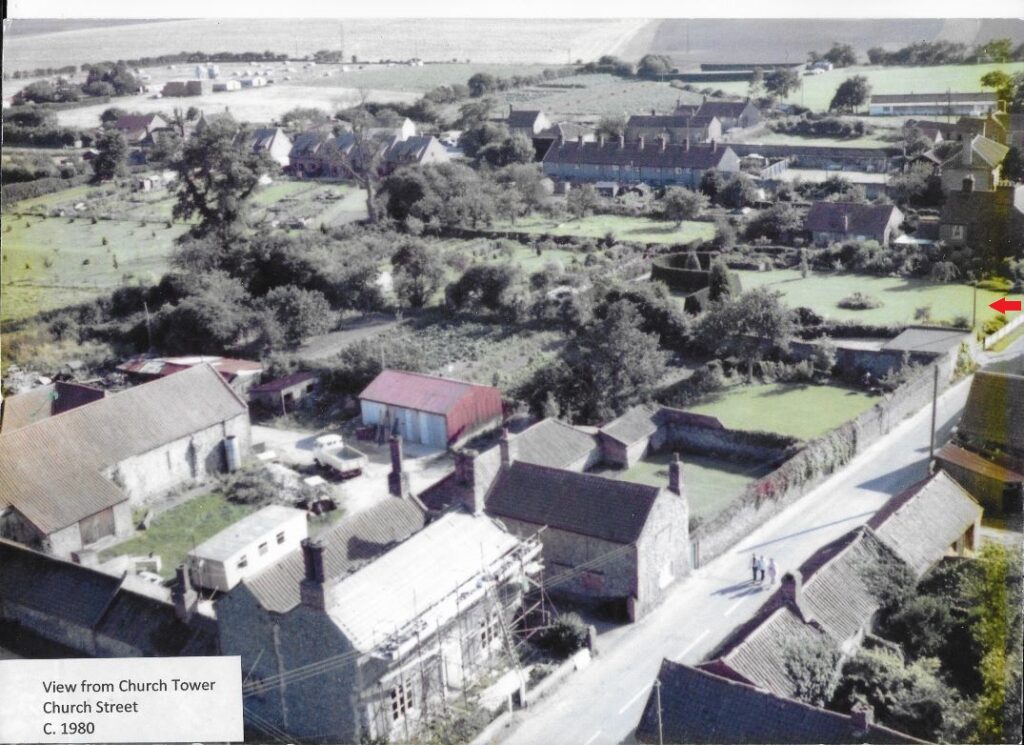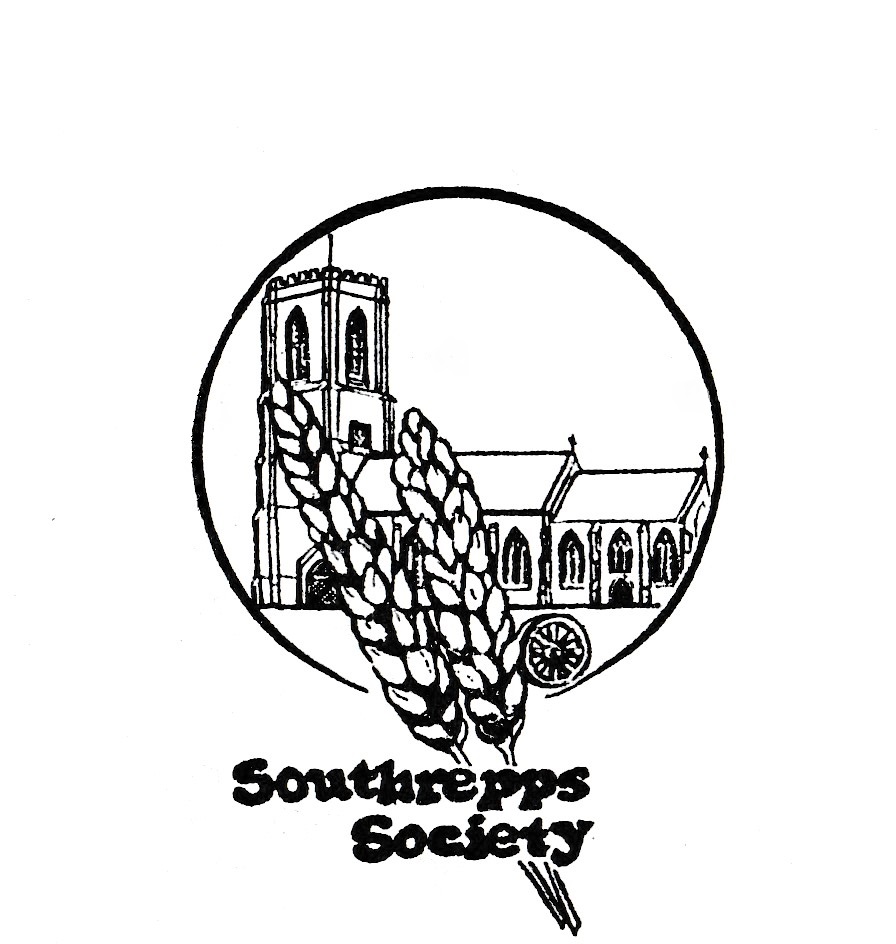Compiled by Colin Needham from documents in the Southrepps History Hub including extracts from The British Resistance Archive
A Southrepps Farmer, Gardener and Secret Warrior

John (Jack) Everett managed and subsequently owned two farms in Southrepps and Northrepps for some 35 years immediately after the Second World War. He lived in Southrepps until his retirement in 1989. John Everett came from an old Norfolk farming family. His grandfather had owned Old Hall Farm in Cley and his father farmed in Thwaite Hall Farm (near Aylsham) where John grew up and honed his farming skills. After the war he took up an appointment as Farm Steward of Lodge Farm in Southrepps. At that time, the Landowner was Samuel Gurney, Viscount Templewood. Some years later he became firstly
the tenant and then the owner of that farm and the adjacent Frogshall Farm in NorthRepps. After his retirement, he and his wife Sally moved to Blakeney, where he dedicated much of his time to gardening. He was also fine shot, a keen cyclist, and a tireless walker. He sold the farms to Peter Sladden and they are now part of the Hall Farm estate.

Held by Southrepps History Hub
After the war, he was appointed Steward of Lodge Farm in Southrepps. He subsequently took over the tenancy of this farm and the nearby Frogshall Farm in Northrepps and eventually purchased both farms in 1964 from the then owner Paul Pagett.
John moved to The White House Church Street, Southrepps. He purchased land on the opposite side of the road and created an ornamental garden and planted an arboretum. In 2023/4, two new houses were built on the site of the garden.

John had the ability to make friends wherever he went and there can be few who knew, or had some connection with, so many people in North Norfolk. Most of his friends, however, would not have known that during the war John had been a member of Auxiliary Units. After war had been declared John, under-age and unknown to his parents, joined the Alby and Thwaite company Local Defence Volunteers which later became the Home Guard. The members were initially armed only with pick axe handles and personally owned shotguns. At the age of just 17 John was promoted to Lance Corporal.
Still only 17 in the autumn of 1941, John was approached by local farmer Alex Scott about joining Auxiliary Units and soon became a member of Erphingham Patrol in Norfolk Group 3. He was issued with a standard set of AU clothing, consisting of battle dress, great coat, army regulation boots, ankle-length rubber boots for walking quietly, webbing, camouflage scarf, gas mask and a tin helmet. The weapons initially issued were a Smith & Wesson .38 revolver for each Patrol member, rubber truncheons and commando daggers, and some members also had a knuckle-duster. In addition they had a Thompson submachine gun (carried by George Wolsternholm), a P14 .303 rifle and a .22 single-shot rifle fitted with telescopic sight and silencer. As the best shot in the Patrol, the .22 rifle was assigned to John to be used as a close-range sniper rifle.
In his memoirs, which according to his request could be made public only after his death, John recalls with his characteristic humour: “For joining something so covert, the “signing-on ceremony” consisted only of signing the Official Secrets Act by the side of Topshill Road – a woodland track about 50 metres from the Patrol’s OB – witnessed by Captain Duncan, the Norfolk Group 3 CO, and Patrol leader Alex Scott.”
Until then John had had no idea that such a thing existed nor that Alex Scott was a member of such a unit. Within 30 minutes of signing the Official Secrets Act the other members of Erphingham Patrol had turned up for one of their twice-weekly meetings at the OB. John knew all four of them personally but had had no idea that they were part of a “secret army” prior to this. At the time the Patrol consisted of Sgt Alex Scott, George Wosternholm, David McKay, Alec Cargill and a Mr Parish (transferred out – replaced by John Everett) They were shortly afterwards joined by Leonard Daniels who was transferred from Matlaske Patrol.
John was amongst the Patrol members selected for advanced training and he recalls attending six 1-week courses at Coleshill. The training generally consisted of observation skills, map and compass reading, navigation by the stars, new developments in underground warfare and sabotage. All of John’s training at Coleshill had been completed by the end of 1943.
About four days before D-Day (Operation Overlord) John and several other local Auxiliaries received orders to be at Eagle Corner, Erpingham, to be picked up by army transport. They were taken to Norwich railway station, and once aboard a train their sealed orders were read out to them. They learnt that they were being sent to the Isle of Wight, with no further explanation being provided. On their arrival the men from Norfolk Group 3 soon discovered that Auxiliaries from all over the country had been sent to the Isle of Wight and they were informed that they were to join regular army units, and with them form anti-invasion patrols in case of a German counter attack. John was allocated to accompany a unit of Welsh Borders to be stationed at the village of Freshwater where they were soon joined by members of the Durham Miners Auxiliary Units.
On D-Day, John could clearly see part of the invasion fleet leave the Solent and later he heard the bombing and shelling on the Normandy beaches. He could see the palls of smoke on the horizon and aircraft and ships going and coming from France to England. After having spent three weeks on the Isle of Wight the Auxiliers were relieved of their duties and replaced by others.
After stand-down all equipment and explosives had to be returned and the army took all the items from the OB. Like all the other Patrol members, John was visited by Captain Duncan (Norfolk Group 3 CO) and Alfred Barrett (their Quartermaster), who collected personal equipment including side arms and uniforms. About three months later he received a small enamel lapel badge which he has kept in a safe place ever since. After a party held at Stuart Hall/Suckling Place for the Norfolk Auxiliaries the men were finally able to resume their everyday lives.
